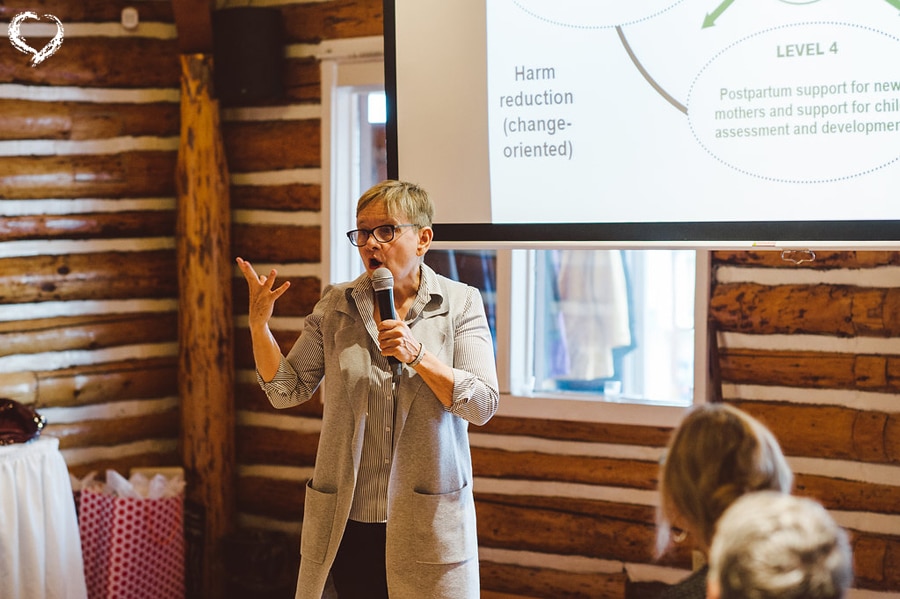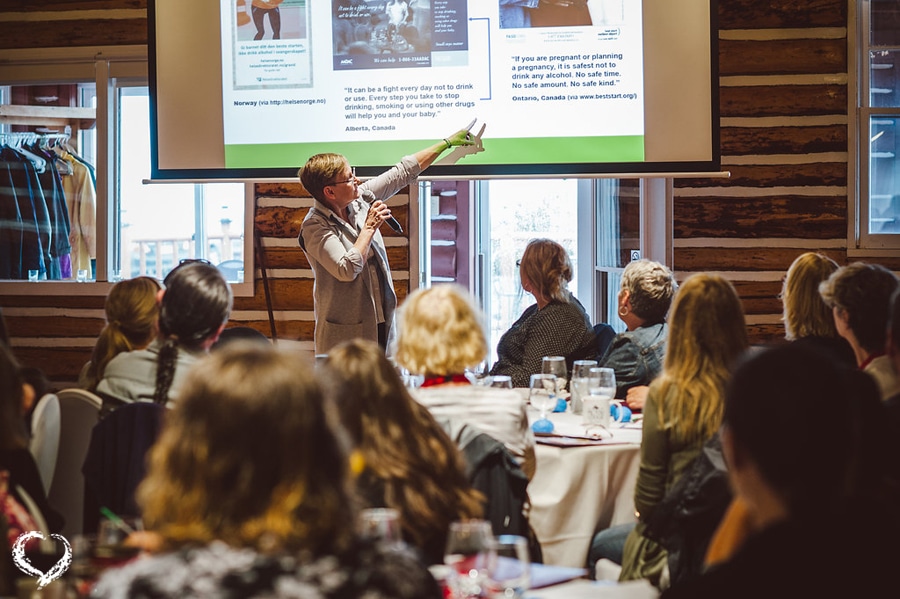New Glasgow, Nova Scotia, Friday, May 30, 2025...
Conference Focuses on System Change

With funding support from the Aberdeen Health Foundation, Pictou County hosted the first ever conference on Fetal Alcohol Spectrum Disorder (FASD) in Nova Scotia with a focus on intervention. It was organized by the Northern Region FASD Committee to enhance understanding of the barriers faced by youth and young adults living with FASD, and the ways health, education, and justice professionals can change practice and policy to reduce these barriers, and improve outcomes for clients.

“Work in the FASD field is complex and requires specific strategies and supports,” said committee member Michelle Ward. “If we can better prepare children with FASD for the adult world, we can reduce and in some cases prevent exposure to the justice and child protection systems. This conference provided tools to get us thinking about how we can use what we know to change what we do.”

“As a funder it has been very gratifying to receive messages from people who attended, letting me know how valuable the conference has been to them and how it is already impacting their work. It was also great to see a full house for the event and even though there was a waiting list, the response was a good indicator that our funding had the desired impact in terms of ensuring the event would be affordable and accessible to a wide array of agencies,” said Susan Malcolm of the Aberdeen Health Foundation.
L-R: Deana Bryan, Michelle Ward, and Laura Hasiuk
“As a therapist that works with kids that experience FASD and their caregivers, I found this conference extremely inspiring. The speakers were incredibly passionate. I was so inspired by the work they do with these families. I loved that this conference wasn’t just about working with children, it was about the whole continuum of care and how what we do now can influence outcomes into adulthood. I see kids at a moment in time, this conference made me think about women and pregnancy and the messages we need to deliver, and how our interventions now can affect the whole life cycle of our patients.
FASD is complex and there are so many different systems these families have to interact with, which is why we need a coordinated approach so that we’re all working together. More resources are needed but, one of the other really important messages from this conference, these families are so worth it. If you put the work in, the outcomes can be improved significantly and everyone benefits.”
Laura Hasiuk, Occupational Therapist
Nova Scotia Health Authority, Northern Zone
“There was so much value in this conference for me, but if I had to pick one thing that stands out, it would be the multi-disciplinary approach. There were so many different perspectives reflected, from diagnosis to intervention, and this was true not only of the speakers but also the participants. It was great to have so many people from a diversity of fields in the room – from education to justice. It made for some very transformative insights.
Another really important take away from the conference is that it is important not to get hung up on whether someone has been officially diagnosed with FASD. There is currently only one person in Nova Scotia doing diagnosis, so this would be a disservice. An example might be someone who is late for an appointment. They would ordinarily be penalized and put at the bottom of the waitlist. But if there’s a possibility that FASD is involved, it means this individual is not being irresponsible but has an impairment in their executive functioning skills. Maybe they just need help setting up a reminder on their phone. This is an easy adjustment for a practitioner to make to help someone and one that can significantly improve outcomes.”
Deana Bryan, MSW, RSW
Regional Prevention Coordinator
Nova Scotia Department of Community Services
“This conference was an opportunity to educate the broader community, especially community services and justice about the prevalence of FASD and initiate a conversation in terms of making changes in program delivery. In looking at the evaluations, a majority identified that their knowledge before the conference was limited to none and that their understanding had increased significantly. There was also a really strong commitment to making change, either at home, in the community, or in the systems that serve us. Some planned to initiate a conversation about FASD around their dinner table, others with their staff, and others who expressed a commitment to fight for better diagnosis in Nova Scotia.
Being able to approach the Public Health Agency of Canada and others with the funding commitment already in hand from the Aberdeen Health Foundation was what helped us attract so many partners and make this conference the success it was.”
Michelle Ward
Executive Director, Kids First and Northern Region FASD Committee Member

